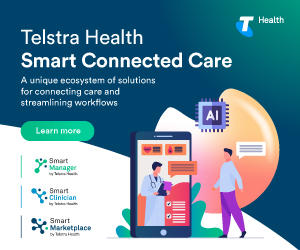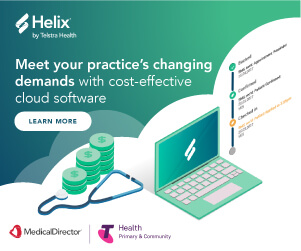Report predicts tech-enabled ‘smart’ healthcare
Healthcare providers and sector stakeholders are hungry for innovative ways to deliver better patient-centric, tech-enabled ‘smart healthcare’, a new report revealed.
According to the Deloitte 2018 Global healthcare outlook, healthcare providers are currently working hard, but not ‘smart’. But with the ever-evolving policies, processes, and capabilities, along with the scale and complexities impacting the sector, smart, technology-enabled healthcare is not going to come easy.
Leveraging technology for a new era of smart health
In the current landscape, the report highlighted clinicians are still finding it a challenge to coordinate appointments and procedures, share test results, and involve patients in their treatment plan. And with increased cost and budget burdens facing the sector, the pressure is on to leverage the power of technology and tools to find more effective ways to reduce costs and boost workflow and operational efficiency.
Cyber security remains a key priority
Cybersecurity and data risk management continue to be front and centre of smarter healthcare, especially with patients taking a more active control of their health, and wanting access and reliability to their data.
According to the report, health systems worldwide share overarching health policy and regulatory goals—ensuring quality care and patient safety, mitigating fraud and cyber threats.
The trends in data management and security include cognitive computing, cloud-based, interoperable electronic health records, and Internet of Things (IoT). Interestingly, digital healthcare technology solutions addressing better diagnostics and more personalised therapeutic tools are leading to the way in data protection.
The smarter way to be patient-centric
When it comes to improved patient-centricity, the report found healthcare organisations should consider extending their focus beyond price and quality of care to creating a customer-centric relationship. Healthcare has an opportunity to learn from other industries such as consumer products, financial services, and hospitality, on how to more effectively target, serve, communicate with, and retain customers and patients, the report found.
Importantly, the report found hospitals can provide more personalised care through better engagement with consumers and elevate patient experience by using digital solutions to aid omni-channel patient access, including customer apps, patient portals, personalised digital information kits, and self-check-in kiosks.
Other digital channels, and tools the report found will enhance more personalised, provider-consumer interactions include:
- Leveraging social media to improve patient experience
- Telehealth
- Virtual reality/augmented reality
Shaping the workforce of the future
Workforce challenges in the healthcare industry remain a key burden on healthcare, such as staffing shortages in hospital specialties and nursing shortages. Compounding the problem is a scarcity of next-generation skills to guide and support the transformation to becoming patient-centric, insight-driven, and value-focused organisations.
This means leveraging technology that can better automate clinical, robotics, AI and other automated have enormous potential to resolve current and future healthcare workforce pain points, the report found. Importantly, the report stressed healthcare providers should embrace strategies where talent can collaborate with technology to improve efficiency instead of competing against each other.
Investing in a digitally enabled future
But despite the wider benefits of a more tech-enabled future of health, the report highlighted that from the outset, keeping pace with rapid technology developments is likely to require massive investments in electronic patient records, interoperability, and big data amongst others. Meanwhile healthcare providers can also leverage the power of data and analytics to help deploy more innovative care delivery models.
This means healthcare providers and organisations that are serious about ‘smart’ healthcare should consider strategic investments in people, processes, and premises enabled by digital technologies.









